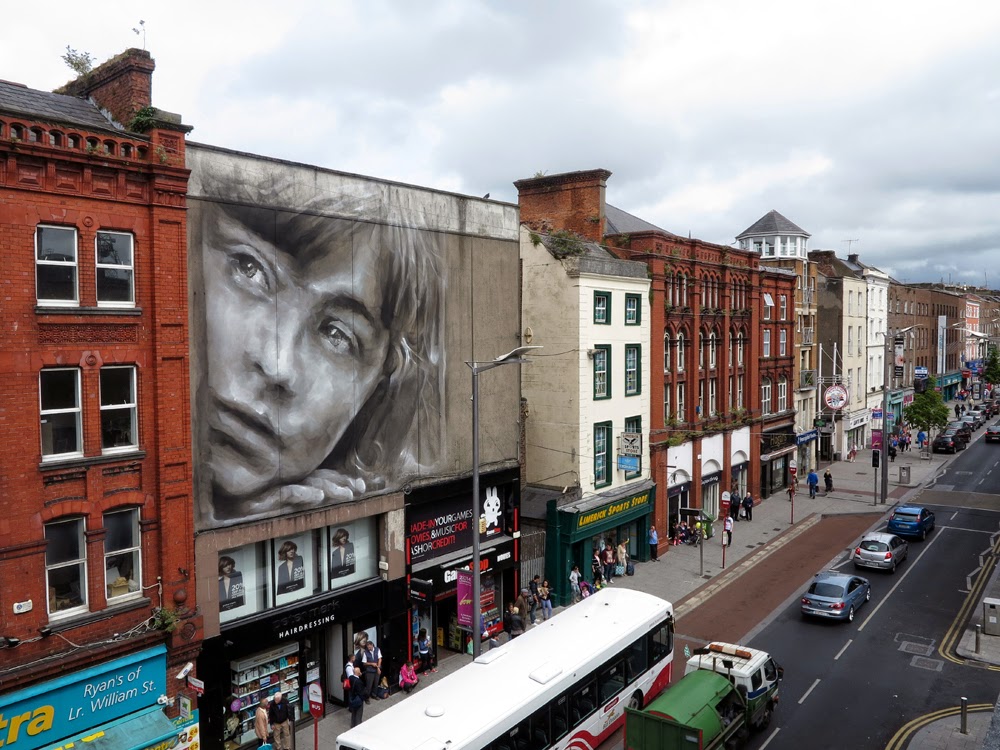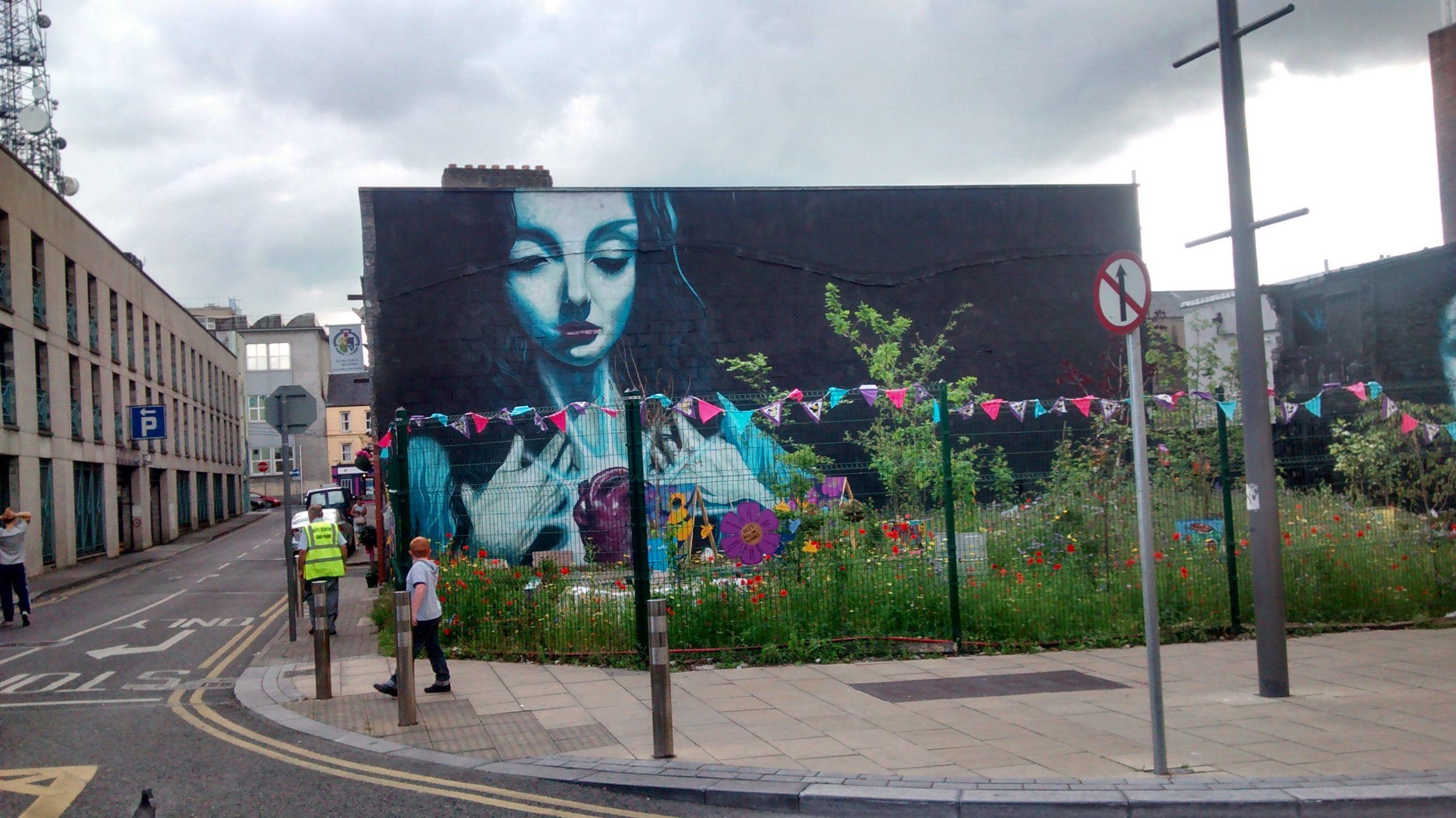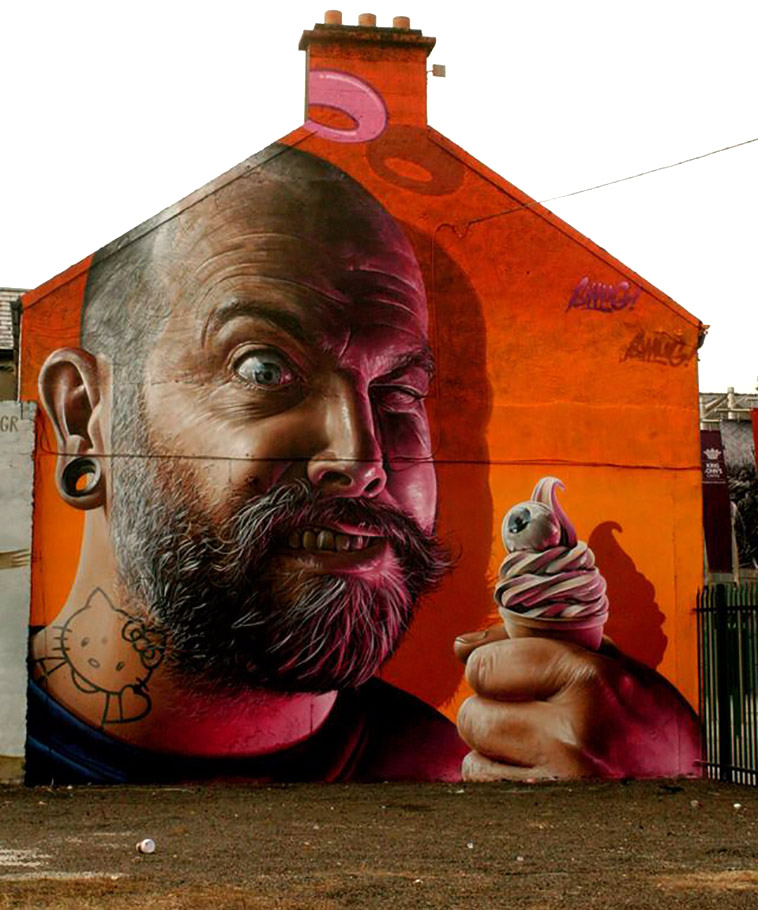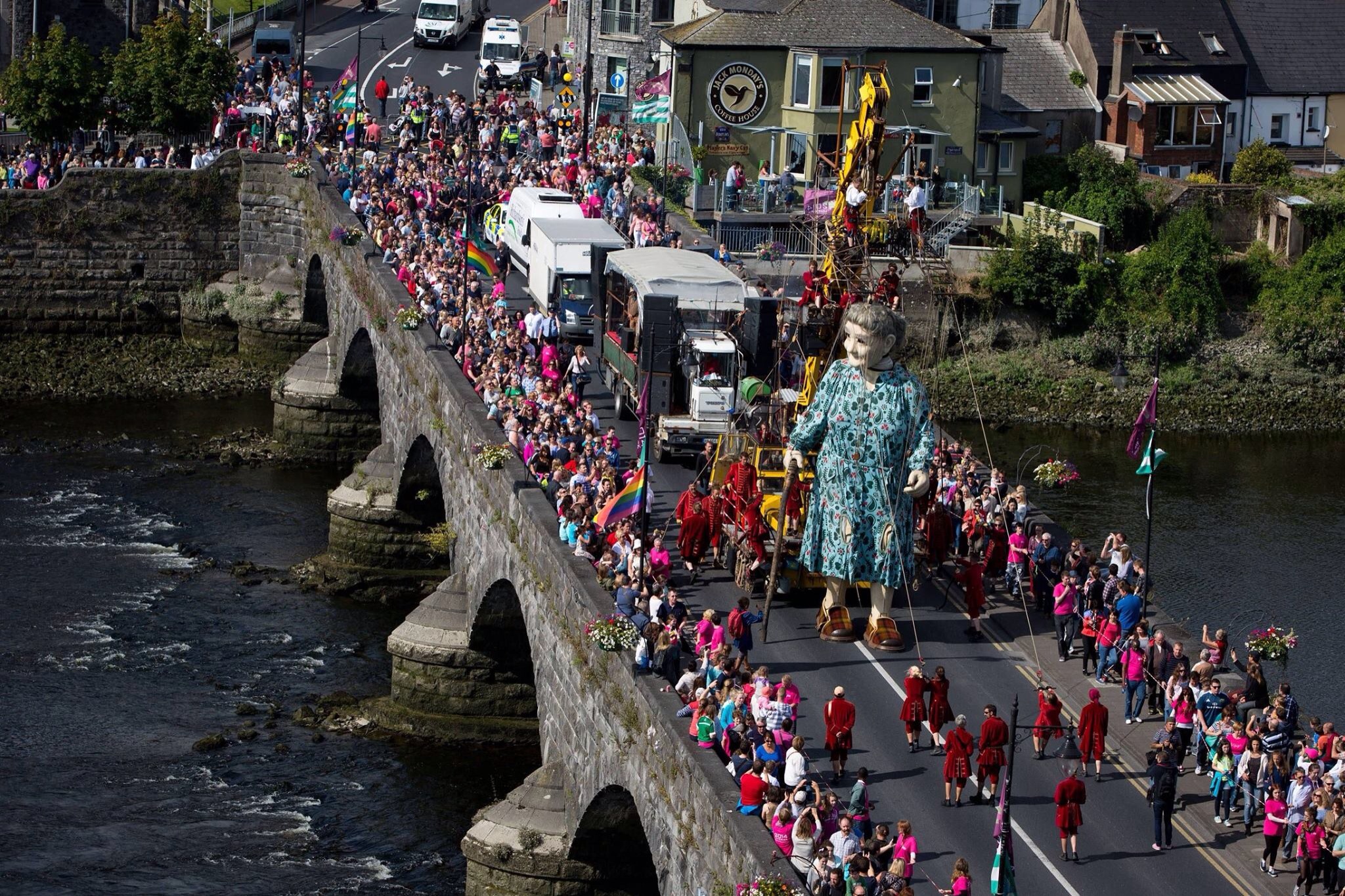Narrative 4 Uses Storytelling to Build Bridges of Empathy




Limerick, Ireland, the city made famous by Frank McCourt in his Pulitzer prize winning memoir Angela’s Ashes, has become the European home of the global not-for-profit Narrative 4. Narrative 4 was founded by Colum McCann and other artists, activists, and educators to use the art of storytelling person-to-person as a tool to address the greatest need in the world: empathy.
Narrative 4 fosters radical empathy in individuals from myriad backgrounds and different walks of life to change the way they interact with their communities and the world. The story exchange is the core methodology of Narrative 4. In this process individuals trade and retell each other’s stories in the first person. This builds empathy by giving participants the singular experience of walking in another person’s shoes and seeing the world through their eyes. The story exchange can be put into action almost anywhere, from schools seeking to decrease bullying to groups of adults engaged around certain issues The story exchange creates safety, openness and a level playing field for all participants, giving them the opportunity to experience personal narratives with understanding, and without judgement.
Limerick is the city of two tales. On one hand it has an affluent middle class population but on the other, a traditionally large under-served population. An electoral district in the inner-city is the poorest electoral district out of 3400 districts in the Irish state. It also had the highest rate of suicide, self-harm and marital breakdown as well as problems with gangland crime. But Limerick is rising from the ashes with a renewed sense of identity. In 2014, Limerick was named the Irish National City of Culture. A bumbling of creativity has created a thriving arts scene and with 42% of the population of the city under 30, the city embraced its youthful vitality.
During its hour of need Limerick turned to its artists. Artists began rehabilitating empty retail spaces in the city. An old factory became the site of an international art exhibition. The streets themselves became canvases with increasing amounts of street art on buildings all over the city. One art project ‘Our Nations Sons’ by artist Joe Caslin depicted large scale reproductions of real-life teenage boys from the city. Limerick finally embraced its post-industrial edginess with other large-scale regeneration projects. Narrative 4 became part of the cities re-story(ing). The organization partnered with the City, renovating an old library in an unused Georgian building to form a new cultural hub and landmark building in the heart of the city. In October 2016, the Narrative 4 Storytelling Centre opened. The centre aims to break down barriers and shatter stereotypes and create empathic leadership through its programmes and cultural events. The centre works with all age groups conducting story exchanges between senior citizens and students, across socio-economic groups, with migrants and through technology connecting Limerick classrooms with classrooms all over the world.
For this assignment Narrative 4 asked some of its participants to submit a piece of work inspired by their Narrative 4 story.
—James Lawlor, Regional Director, Narrative4 Ireland
Criteria
by Sarah Little
Doubting, questioning, pondering.
Is there a point anymore?
To give up? Or to continue?
Lies, Lying, Liar.
I cannot stand to bare.
Just to fit into their criteria,
I’d rather not compare.
My Bed Was Never Yellow
by G.a.Culhane (Laurel Hill Colaiste FCJ Limerick)
The bedsprings would sing and squeak when I jumped,
Blue covers like waves lulled me to sleep.
Scattered thoughts like seeds became ideas and dreams
when the sound of rain pinged off the roof.
A yellow bed? No, my bed was blue.
She’s got the blues: they knew.
Blue covers – like waves,
A heavy duvet – a heavy heart
swallowed in the sea,
Drowned within my dreams.
The Crumb
by Noelene Nash
The evening
stretched
and broke
the back of
the black horse day,
as he sat
and shared
sardines with his
mousy cat,
the tin scraped to
empty,
left to a clean lick-
he leaned back
against
the frame of it,
decaying above him
trying
to bury him,
in its shadows,
in the black
upon the grass
they danced and worked,
the ants
that found
the crumb
that he thought
he hadn't left,
in the mud
that
followed him to
the door,
in a named print
that might be
his,
on another day
spent
beating the
dead horse.
Untitled
by Gustav Marciszewski (Scoil Mhuire agus Ide)
I am from the corner shop, from the countless balcony pillow forts and the house built by my father's own hands. I am from the loud rock music Paul played. I am from the family-owned bar, the bathtub mouse. I am from the BBQ family gatherings during the summer months and from the apartment blocks, from Adam and Beata. I am from the Christmas sleighs and the blueberries gathered by the thief with expansive, hairy arms. From the 'chlapkas' and the I love you's. I am from my grandparent's loving embrace. I am from Elblag, from sweet pasta with strawberries and my late grandfather's lollipops. From the long walks with my grandmother and the lizards that scared us throughout our walks. I am from the nocturnal chats with Wiktoria. I am from the wooden staircase that accommodated countless childhood memories and I am from the suburban bowers.
Shush
by Claire Sadlier
They knocked my house. It’s not there anymore. Regeneration, they’re calling it.
I had lovely neighbours in the old place. None of them came here. They’re all scattered now. I miss them all. I can’t remember the words for things that I use every day. Maureen looks worried when she sees me trying to remember as if it isn’t normal at my age to lose things. She forgets I’m seventy-six.
I hate this house. I never wanted to move here. I can’t stand the quiet. They said it would be easier for me to manage here, everything on one level. What do they know? No one to talk to from one end of the day to the other, most days. I was born and raised near the centre of town. This city is not my city any more. I don’t recognise anything around me. Dessie brought me to see the old house before they knocked the block, so I got to say goodbye.
My eldest, Maureen made a good choice of husband. Dessie is a nice man. She had more luck than I had but there’s no point dwelling on all that now. It’s water under the bridge. My husband turned out to be of no more importance than a comma on the pages of my life. It’s sad when that is all you can say about the man you married. He’s long gone. He may be dead by now. I hope he is. He was always useless anyway. Good riddance to him, leaving me with four small children to bring up on my own while he disappeared into the deep blue yonder to enjoy himself.
Things disappear in this house. I can’t put anything down and leave it like I could in the old place. They come in here while I’m having a nap or lying in bed trying to sleep and move everything on me. I’ve started to leave the light on at night but I haven’t caught anyone playing tricks on me yet. I tried to tell Maureen about it but she just told me ‘Shush!’ The young don’t want to listen to the likes of me.
Maureen is as good as she can be, in fairness, but I wish she’d stop asking me what I had for my dinner. What I eat is my own business. I’ve managed on my own all my life. What with her job and their mortgage she has enough on her own plate and shouldn’t be worrying her head about what is on mine.
The next time she asks I tell her, ‘Shush!’
Loss
by Tim O’Connor
I like to think most words can and do have positive connotations. Maybe it’s just me. Like that old fable about the always-optimistic ten-year-old boy who finds he has received a big pile of horse manure as a birthday present (a practical joke – who knows?) His bemused father arrives on the scene to find his little son diligently shovelling the manure, throwing it to one side.
“What are you doing son?” he asks.
“Dad!” his son enthuses, hardly looking up from his task “If there’s this much horse manure – there’s got to be a pony!”
“Loss” - Isn’t it always nice when your dedicated, hard-working physician says “Well done!! You’ve lost three stones!” Or when you confide in someone: “Phew!! What a relief. I’ve finally lost that toxic friend of mine.”
Or I suppose if I were to really heed people who have been through it all before, I would listen when they say: “We learnt very little from our successes. We only really learnt from our losses, defeats and failures.”
I have long believed that my life is negotiated much more easily when I am willing to shed possessions, continue to un-learn and re-evaluate the baggage of my memories. And to try to travel light.
Untitled
by Seán Walton ( Desmond College- Limerick)
Sometimes if you listen close enough, preferably at night,
You’ll hear the voice inside your head telling you wrong or right.
You might not hear him often or maybe all the time,
So I’m telling you judge I heard him, he told me commit the crime,
Now you might call me crazy or maybe even insane,
but I don’t care what I am, he’s the one to blame.
He told me rob the car, he told me burn it out,
Next time he talks to me I'll shut his bleedin’ mouth,
Ah well he’s not that bad he’s actually kinda sound,
And sure there’s nothing at all to do when he’s not around.
but we were only having a laugh and maybe he took it too far,
When he told me drive the robbed car from here to Mullingar,
Now I know that it was dangerous and I know that it was wrong
So next time he tells me to, I won’t tag along.
So your Honour I’m pleading innocent, for what I tell you is true,
Because there’s one inside your head reading this out to you.
Somewhere Below 0 Degrees
by Emily Duffy (Desmond College, Limerick)
Corners turned, faces blurred, and it was gone
Fear like a rash
A blocked track takes me steps back,
Red chattering teeth
With nothing to eat
Hope on wheels apparition
miscalculation,
Language showed no bounds
She helped me end my tearful sound
Got me to my next station
The Man from Morocco
Frozen night freed
Only my gratitude in return
Will I ever learn?
My baggage misplacing
Returning me to my original pacing
Kind eyes help to my surprise
Yet would not accept his deserving prize,
My destination I adored
Faith in humanity restored
On the Bridge
by Sean O’Dwyer
I could not see the beauty of my image in the stream
A face lined with distortions of someone I had been
The river flowed on gently, meandering on its way
While my spirit rode on cataracts of foaming splashing spray.
I tasted salty bitterness and I spat it out incensed
At the waters that recalled me to my Eden innocence
The spittle drifted lightly a tiny flake of snow
But its impact set off ripples on the surface down below.
Ripples spreading, records spinning deafening symphonies in my ear
Cymbals clanging, drummers banging on soul’s fragile gossamer
From the ruins come plaintive pleadings
Precious tears and sighs
A spirit that is weeping is not dead
I shall arise










